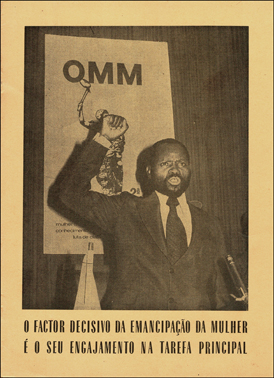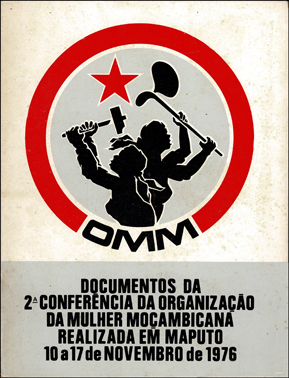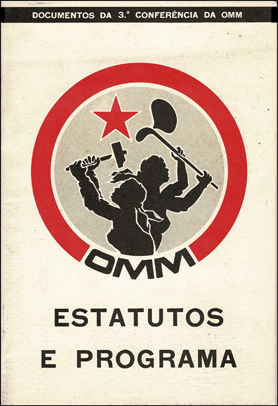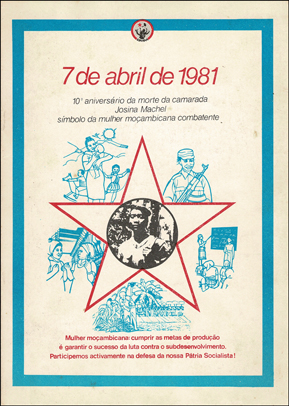Organização da Mulher Moçambicana, 1973-1996
Above: On the left, the cover of a pamphlet edition of Samora Machel's speech to the opening session of the II OMM Conference, in which he argues that the decisive factor in the emancipation of women is their involvement in "the main task", defined as building the ideological and material base for socialist society. Click on the image to download the pamphlet. On the right, the cover of the published documentation of the conference (157 pages). Click on the image of the cover to download the documents.
Above: On the left, the cover of the organisation's statutes as adopted at the III Conference in March 1980. On the right, the cover of a pamphlet published by the OMM in 1981 commorating the tenth anniversary of the death of Josina Machel. Click on either of the images to download a PDF file of the pamphlet.
![]()
This archive includes material from the emergence of the OMM out of preceding women's structures, through its activities as an arm of the Frelimo Party in the 1980s and early 1990s. The first of these structures, LIFEMO (the Liga Feminina de Moçambique) was set up in Tanzania in 1966 but was soon killed off, first because it was too independent and although broadly supportive of FRELIMO policies, was in a position to follow its own political line on "women's questions." These were were repeatedly defined as being primarily lobolo, adultery, "amantismo", prostitution, polygamy, and so on, although in one newspaper report in early 1984 Rufina Mulemba (leader of the OMM in Niassa) suggests cautiously that all social problems are "women's problems". The strong emphasis on sexual morality in this list is a reflection of FRELIMO's puritanical attitudes towards urban lifestyles in general. Second, as an organisation set up outside Mozambique, LIFEMO was accused of being out of touch with the reality of life inside Mozambique and of mechanically copying the organisational structures of foreign women's organisations. Little research has been done on LIFEMO, which seems to have been mainly involved in social support; it is rumoured that some documentation, possibly in Swahili, may have survived in Tanzania.
At a meeting in April 1969 the FRELIMO Central Committee, ignoring LIFEMO's supposed "autonomy", decided to absorb it into the Destacamento Feminino, the Women's Detachment of FRELIMO. The OMM itself was only set up in 1973, and its founding conference was held at Tunduru. A second national conference was held just after independence in 1976, and a third in 1980. The third conference had little impact, and in 1984 an "extraordinary" national conference of the OMM, presided over by Samora Machel, took place, but attempts to discuss e.g. the effects of the conflict with RENAMO on women's lives were blocked.
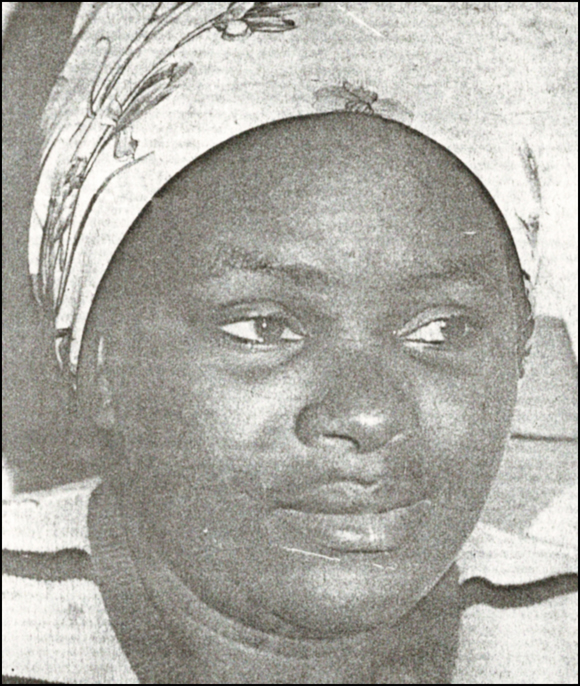
Above: The first secretary-general of the OMM, Deolinda Guezimane in 1976, when she was in her early thirties. She joined FRELIMO in 1965, and was active in the Liga Feminina Moçambicana (LIFEMO) and in the secção feminina, later helping to establish the OMM. In September 1976 Samora Machel abruptly sacked her, together with her seven-member coordinating council. In the 1990s she was a parliamentary deputy and a member of the central committee of the Frelimo Party.
This archive includes an article in French on the first OMM conference (from Tricontinental no.88/89, vol.9, 1974, pages 2-12), which was attended by about 80 delegates, most of them members of the Destacamento Feminino, as well multiple press reports on various later national and other conferences.
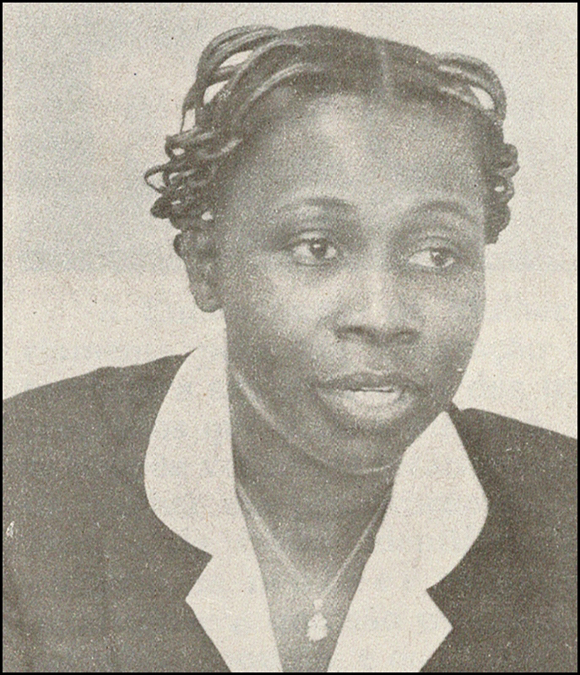
Above: The second secretary-general of the OMM, Salomé Moiane, in 1984. She served in this post from 1977 until 1990, when she became a deputy minister. The OMM was seen as key to literacy and adult education campaigns, and the development of women’s participation in agricultural production. With Swedish support the organization bought vehicles and set up cooperatives, including ones producing clothing. Under Moiane’s leadership the OMM researched and campaigned on questions such as polygamy, initiation ceremonies, child marriages, and bridewealth (lobola). She was succeeded in 1990 by Teresa Romão. The OMM continues in existence to the present day among a multiplicity of other women's organisations.
The OMM published a fortnightly full page in the Maputo daily Notícias, and an irregular bulletin called Mulher Moçambicana. Some copies of both these publications are available on this website.
![]()
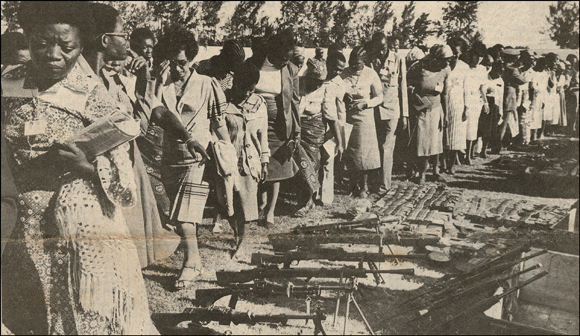
Above: Women delegates to the Extraordinary Conference of the OMM in November 1984 filing past an exhibition of weaponry captured by the governmental forces, the FPLM, from Renamo during the ongoing conflict, which lasted from 1977 to 1992.
![]()
Consolidated Downloadable Zipped Files
Click on the yellow folder image below to download a zipped archive of PDF scans of well over 100 press reports and other documents on the activities of the OMM.
![]()



![Aluka: Struggles for Freedom [subscription required] Struggles for Freedom](imgs/aluka_200.png)



